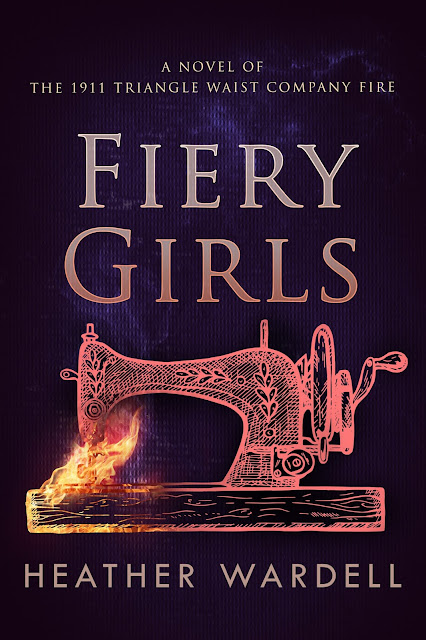August 1942.
Malta stands on the brink, and Navy fighter pilot Edmund Clydesdale stands with it. One last convoy must brave the gauntlet of bombers, U-boats and warships to bring precious supplies to the island fortress. If it fails, Malta falls – and with it, the entire Mediterranean.
Edmund is a reluctant hero, a Royal Navy Sea Hurricane pilot who would rather be anywhere else. But now, it’s personal. The fate of Liena, the Maltese woman he has fallen in love with, is bound to that of the island.
Once again, a handful of outdated fighters must confront the might of the Italian and German air forces as they strive to blow the British convoy out of the water.
Edmund must face his own demons as well as his foes in the air. An old lie and a scorned ex-lover are catching up with him. If Edmund wants to fight for Liena, he must confront his past, as well as his opponents in the sky.
Operation Pedestal - the last ditch effort to keep Malta from falling.
Mary Anne: Congratulations on the release of your new book, Indomitable. What was it about this era of history that inspired you to write about it?
Matthew Willis: Thank you. I’ve been interested in the 1940s war in the air since I laid eyes on my Dad’s Airfix model Spitfire as a child, and having had the opportunity to study it in depth over the years has only increased that interest. When talking about the Mediterranean theatre in the middle of the Second World War, that interested me for a number of reasons. First, it was the real turning point where the Allies started to turn things around after a long string of defeats and setbacks. Then, it tended to be a lower priority for the newest equipment, so there’s a sense of the people out there making do with older and somewhat worn out aircraft and weapons – the underdog is always an interesting perspective.
Mary Anne: Edmund Clydesdale, the protagonist of your story, is a Navy fighter pilot. Why did you choose to write your story from a fighter pilot’s perspective?
Matthew Willis: If you always wanted to be a fighter pilot and couldn’t, the next best thing is to write about one, right? It’s a dynamic, energetic kind of combat that stimulates the senses, so it’s a fun thing to write about, not to mention that every moment can be a life-and-death struggle. In this case, writing about the Operation ‘Pedestal’ convoy in 1942, the fighter pilots were in the thick of the action, defending the ships down below from constant attack, so it made sense to take this as a point of view. On the other hand, having interviewed plenty of pilots and other aircrew from the Second World War over the years, it has always struck me that they were ordinary people who were called upon, very young, to do extraordinary things. There’s a tendency these days to regard those people as exceptional, almost superhuman, and while of course in some respects they were exceptional, they had the same doubts, fears, foibles and flaws as the rest of us, they just had to go through them in the midst of this life and death struggle. It’s something of that ordinariness-in-extremis that I wanted to portray.
Mary Anne: When researching this era, and in particularly this conflict, did you come upon any unexpected surprises?
Matthew Willis: This is a tricky one to answer because my research into this particular operation goes back years, so there weren’t any really big surprises. And for obvious reasons, there hasn’t been much access to archives over the last year, so those little gems that you can get from a neglected file were a bit harder to come by. One thing that did feed into the book was a memo about attitudes to French airliners, which ‘buzzed’ the fleet a couple of times – the Allies were not at war with France but France was unquestionably hostile, so there was a tension over what to do when they might be sending information to countries that the Allies were at war with. Considering how high the stakes were, it was a real problem.
Mary Anne: What do you think is the most challenging aspect of writing Historical Fiction?
Matthew Willis: Staying faithful to the history while pleasing the audience and creating compelling drama. Those three things can be complementary but they can be contradictory. The audience for historical fiction, particularly Second World War fiction, is extremely knowledgeable and they expect you to get the details right. At the same time they want a rattling good story – well, doesn’t everyone? So while your instincts as an author might be to do something in a particular way for the sake of the story and the characters, I find it really hard to go against what we know happened. But in part, that’s why I love historical fiction – reading and writing – as it allows you to get into the heads of people who experienced these epochal events in a way that recorded history, even personal accounts, can’t. In Indomitable, I had a few difficult choices to make, because there were some incidents that I really wanted to cover, but I couldn’t do that from the perspective of Edmund unless I changed things around a little bit. I’ve tried to do that in a way that’s respectful, and I’ve made sure I tell readers where I’ve diverted slightly from the known facts.
Mary Anne: What advice do you have for aspiring Historical Fiction authors?
Matthew Willis: Let the history guide you. Try not to come up with a story and then make the history fit it. I always start with research of something I’m interested in and come at it with an open mind. More often than not, the research itself will suggest characters, drama, conflict, tension and a narrative arc, all the things that make compelling fiction. Don’t be scared of research, that’s where you find the stories, and there’s so much primary source material online these days that you don’t have to spend half your life in archives (not that anyone can at the moment). Above all, have fun with it. The past is a different country, as LP Hartley wrote, and we can go there just for the price of the research.
Matthew Willis is a writer of historical fiction and non-fiction, and an editor of both fiction and non-fiction titles.
He is the author of the 'Fortress of Malta' series of WW2 air combat novellas, charting one fighter pilot's journey through the vital convoys in Summer 1942. He co-wrote the Oath and Crown series of historical novels with J.A. Ironside, centring on the rivalry between Harold Godwinson and William of Normandy in the years leading to the Norman invasion of England. His short story 'Energy', about the 1970s racing drivers Roger Williamson and David Purley, was shortlisted for the Bridport Prize in 2015.
Matthew's first non-fiction book, a history of a WW2 naval dive bomber, was published in 2007 by MMP Books. He followed this with titles on a number of lesser known aircraft, culminating in a major new history of the P-51 Mustang's early career, 'Mustang: the Untold Story' from Key books in 2021. He wrote the first biography of test pilot Duncan Menzies, 'Flying to the Edge', which was published by Amberley Books in 2017.
Matthew studied Literature and History of Science at the University of Kent, focussing on Joseph Conrad for his MA, and sailed for the University in national competitions. He subsequently worked as a journalist for Autosport and F1 Racing magazines, and has written for Aeroplane, Flypast and The Aviation Historian as well as maintaining the blog Naval Air History (http://navalairhistory.com)
He currently lives in Southampton with his University lecturer wife Rosalind, and their silken windhound Nikolai.
Matthew's fiction writing blog can be found at http://airandseastories.com/ and his extensive website about naval aviation, http://navalairhistory.com










































